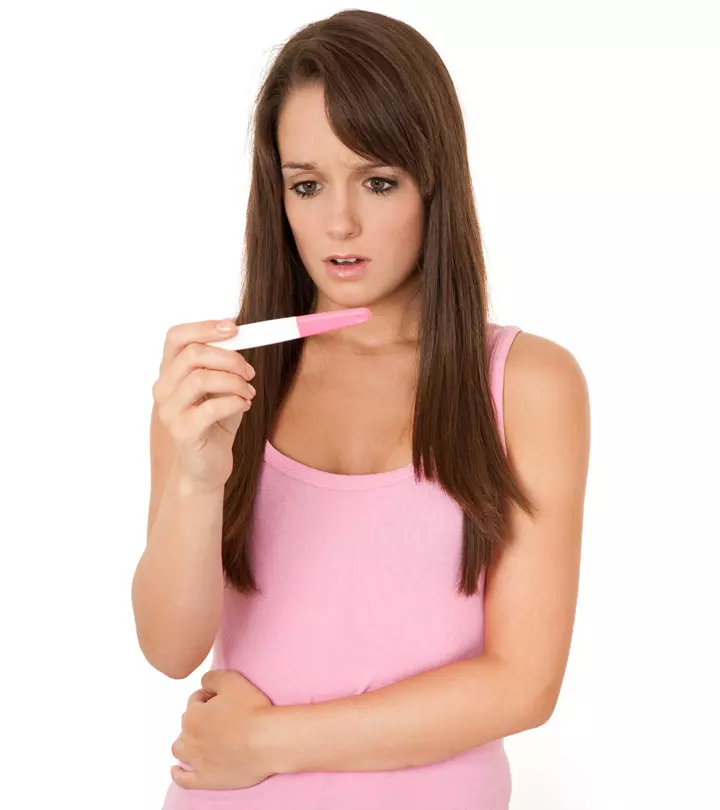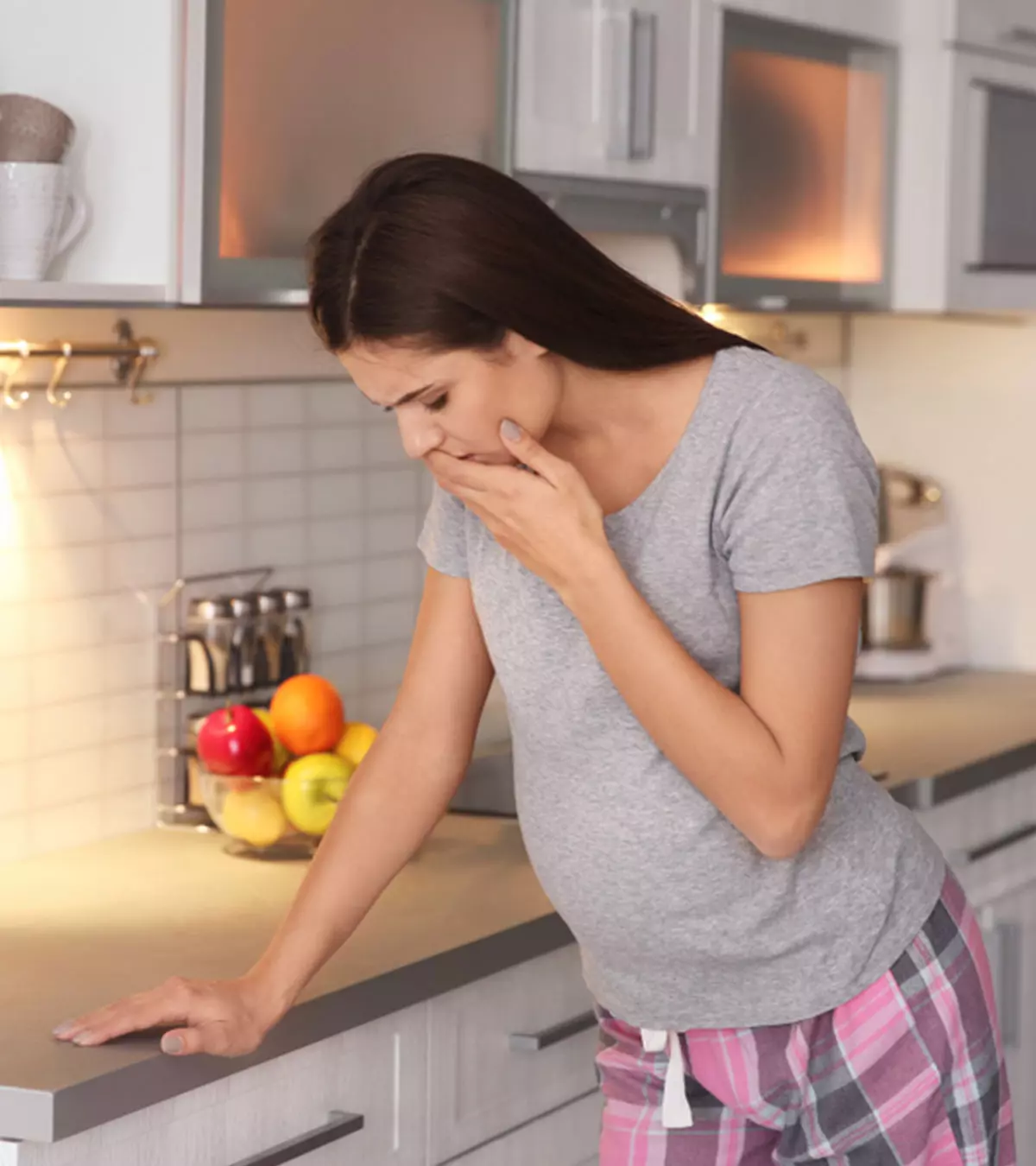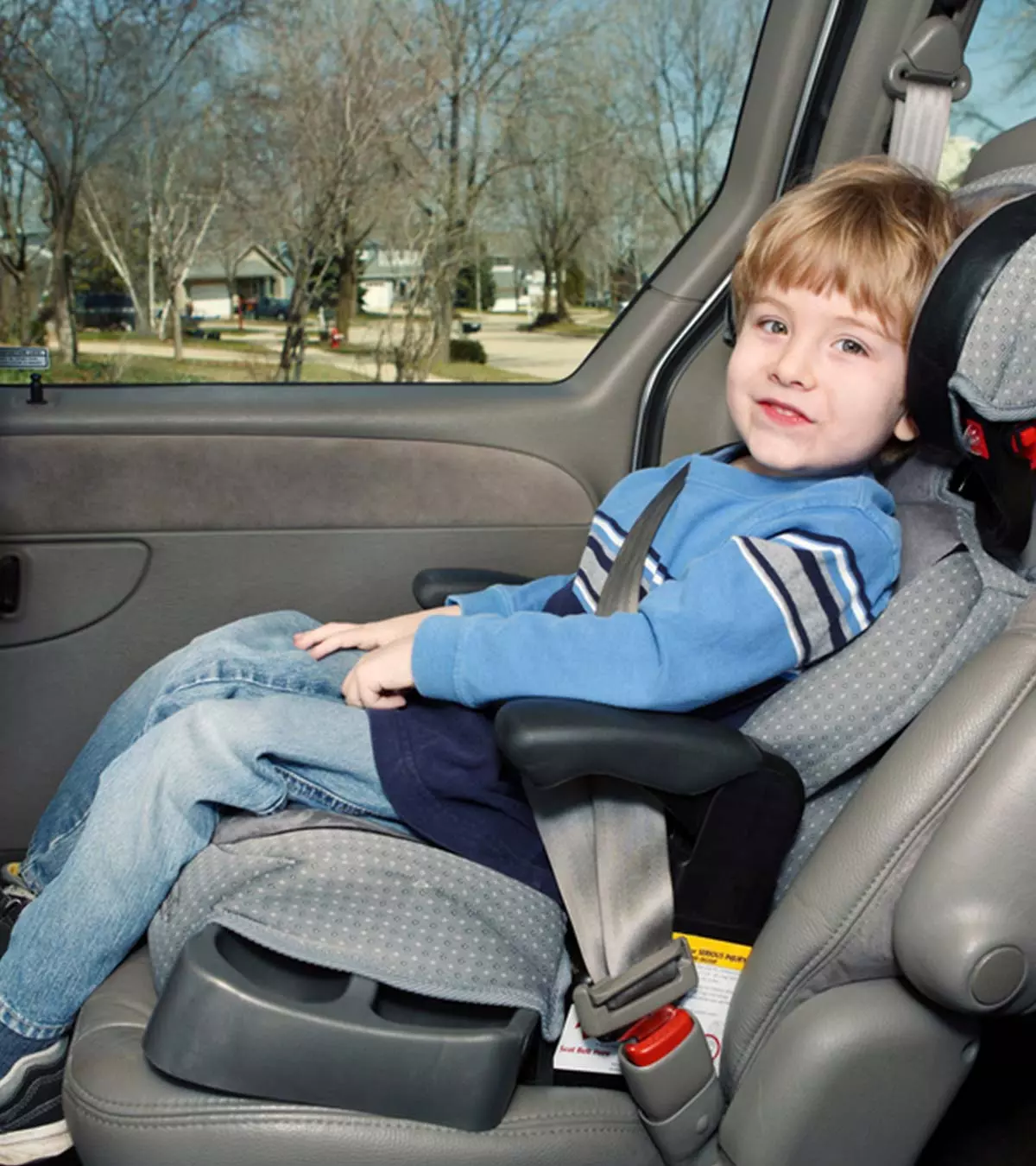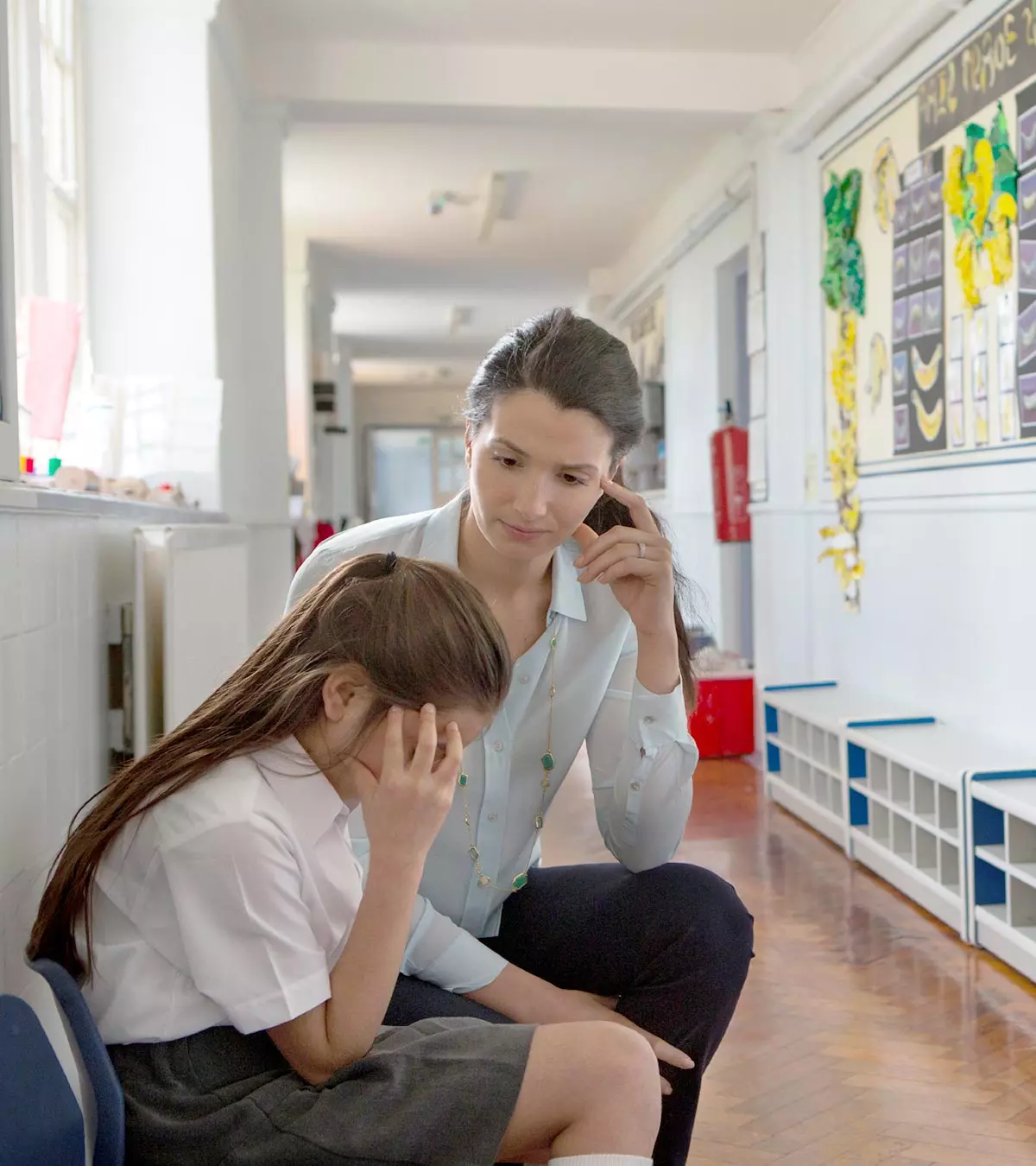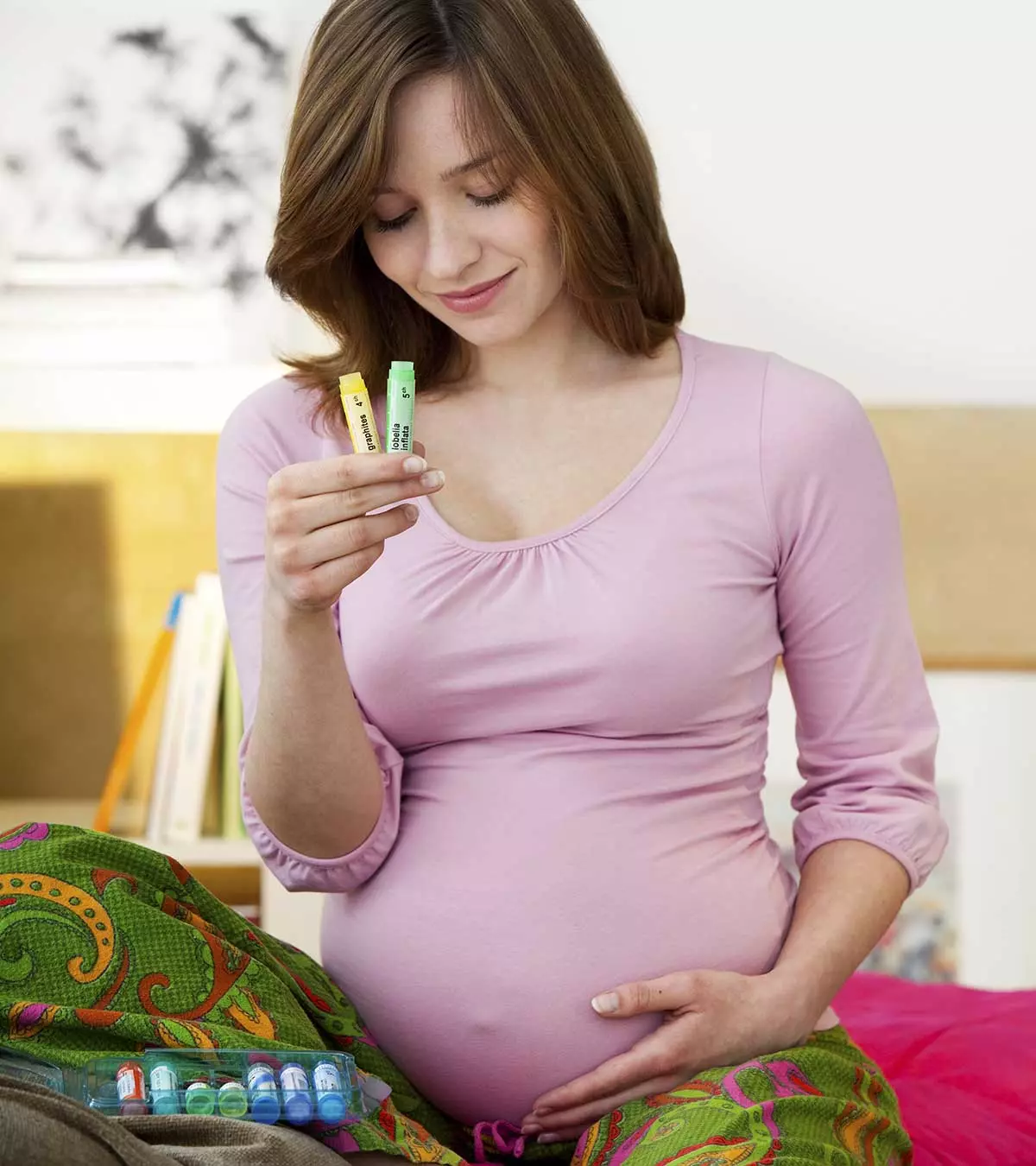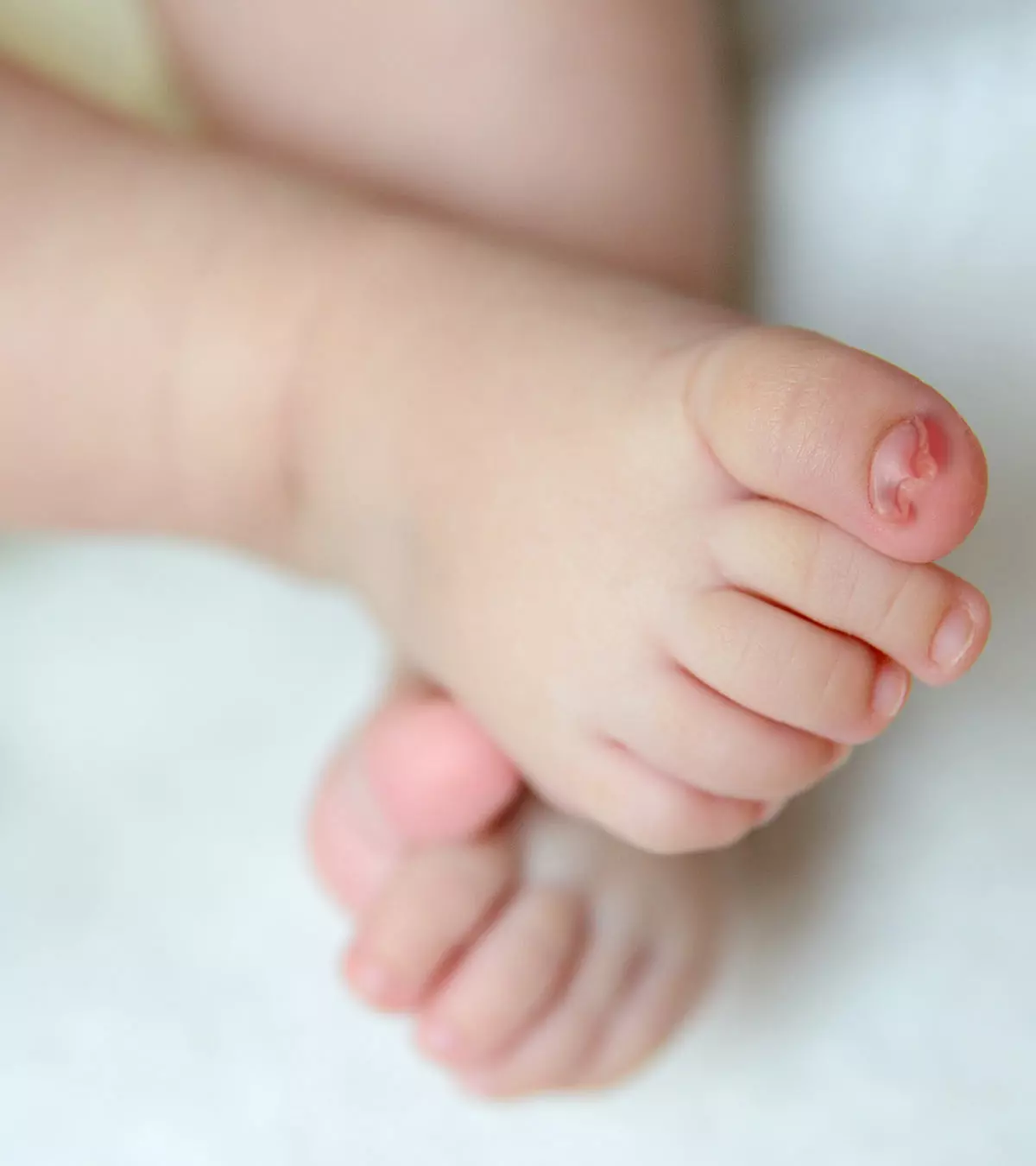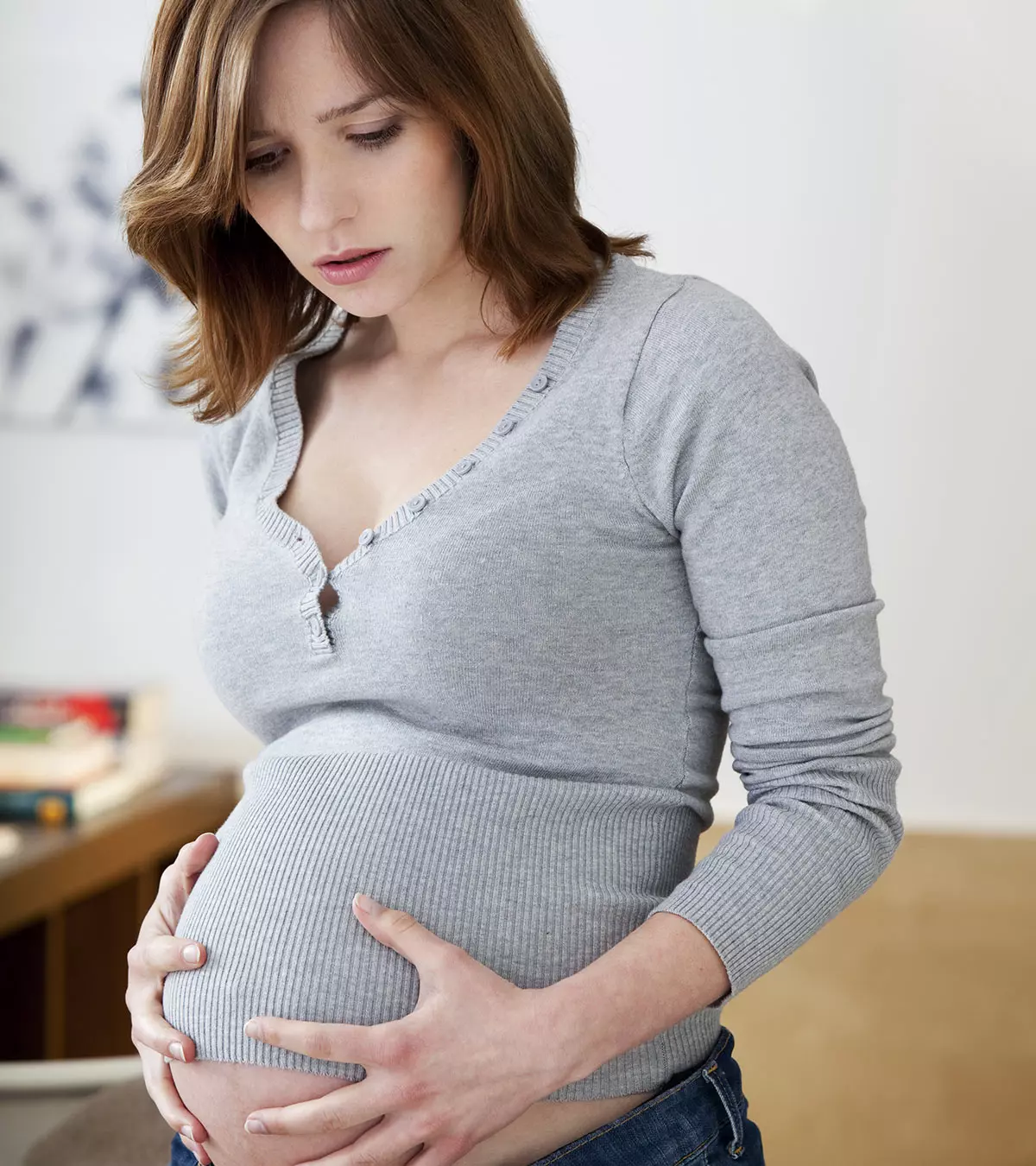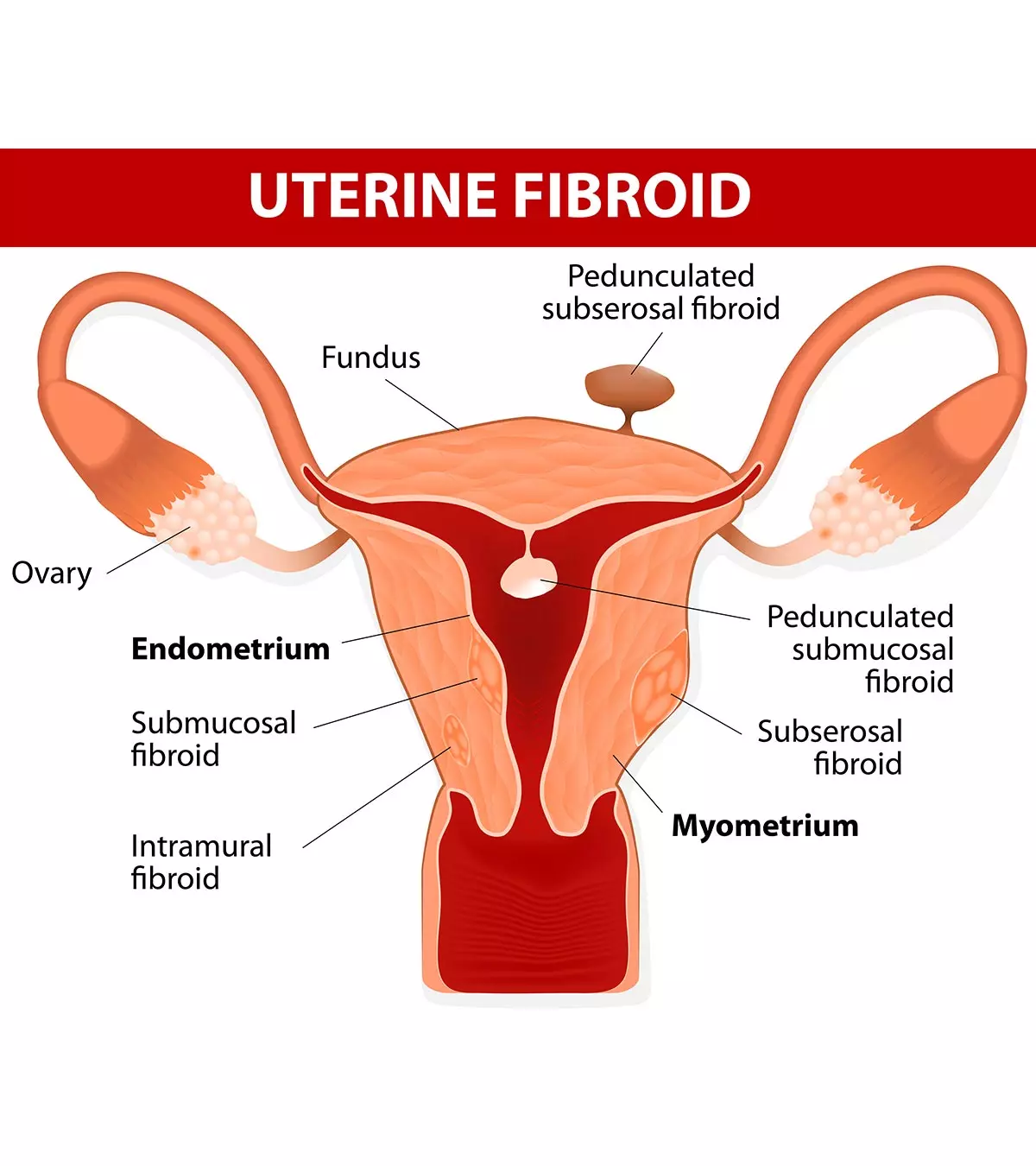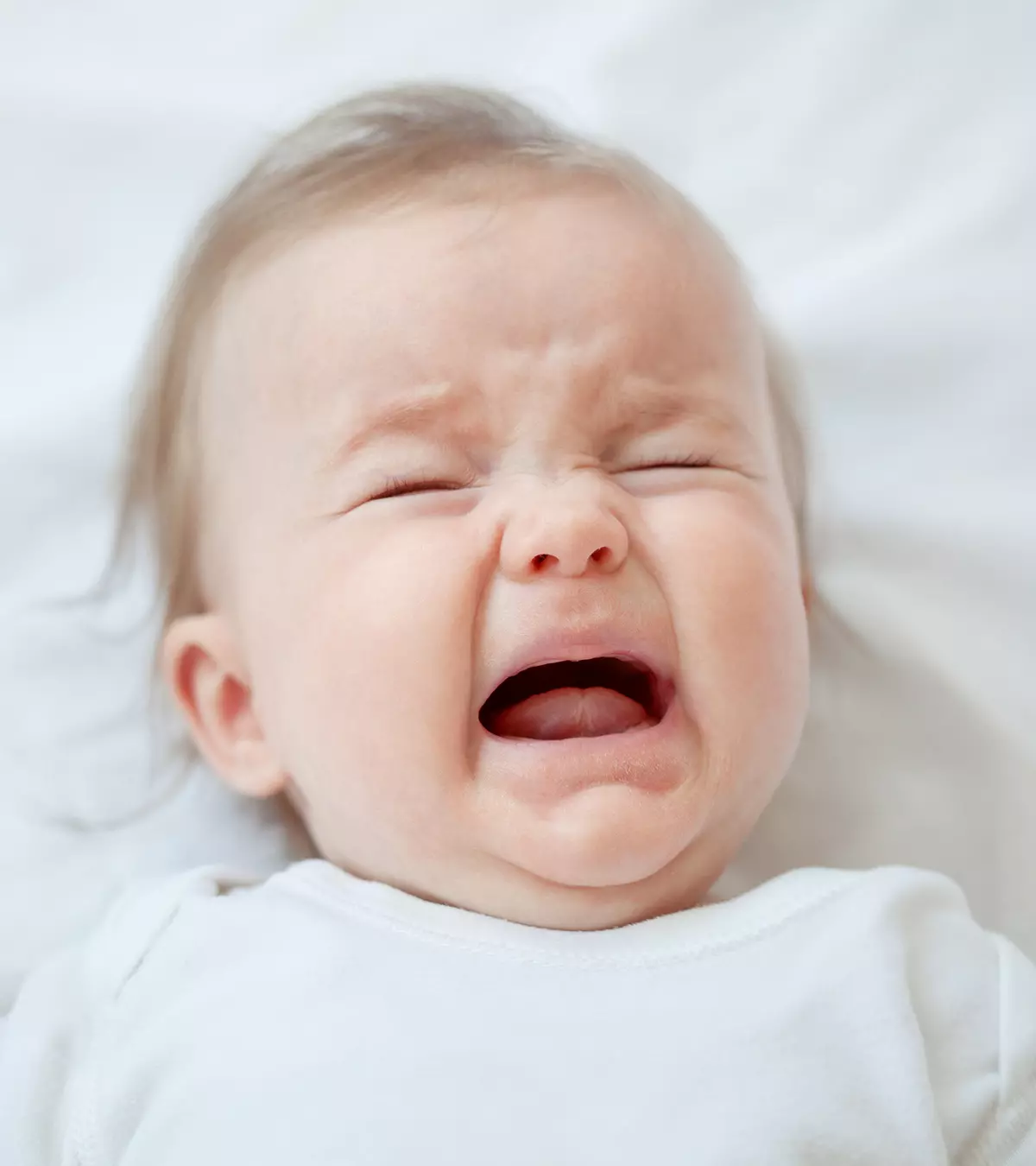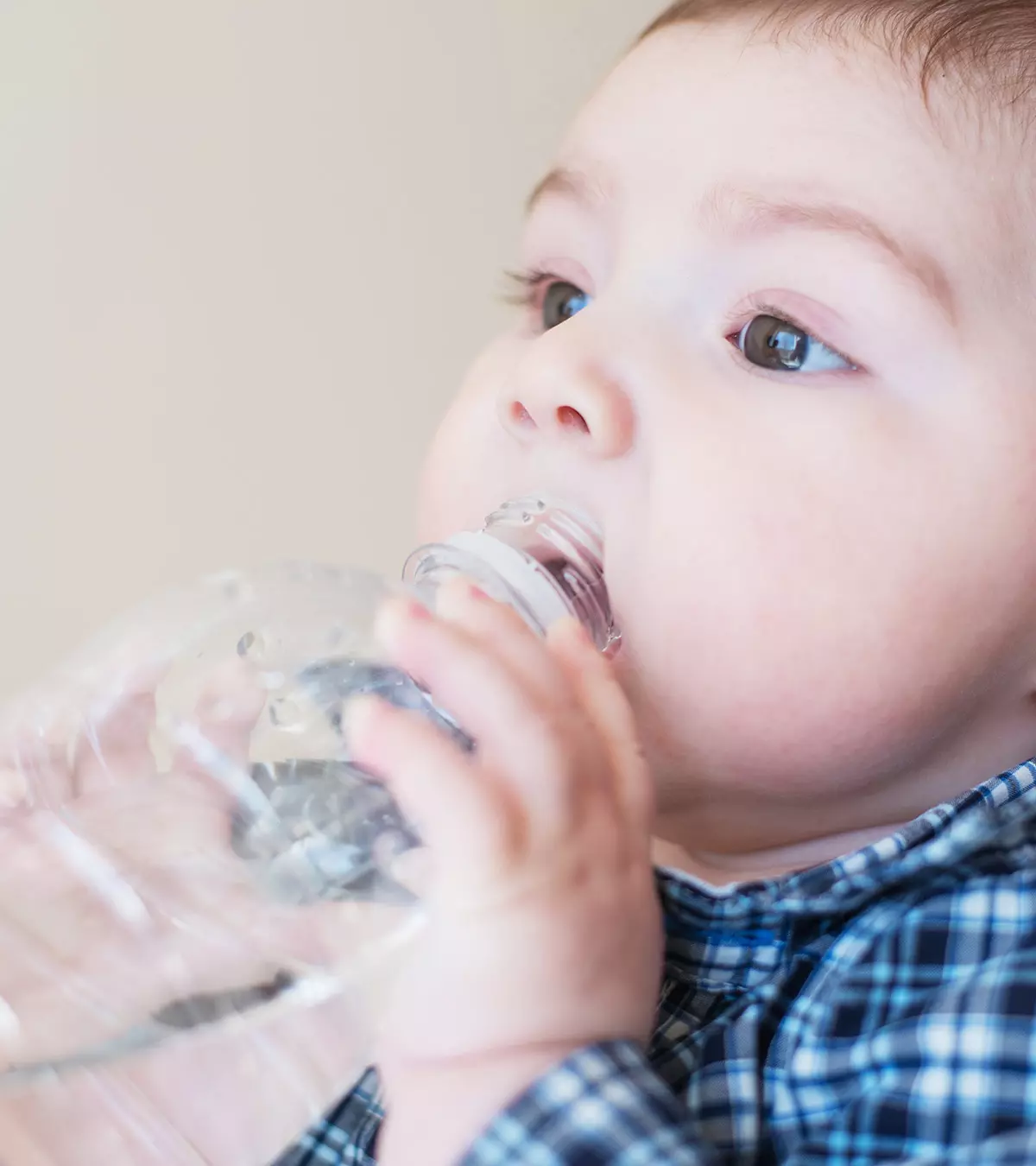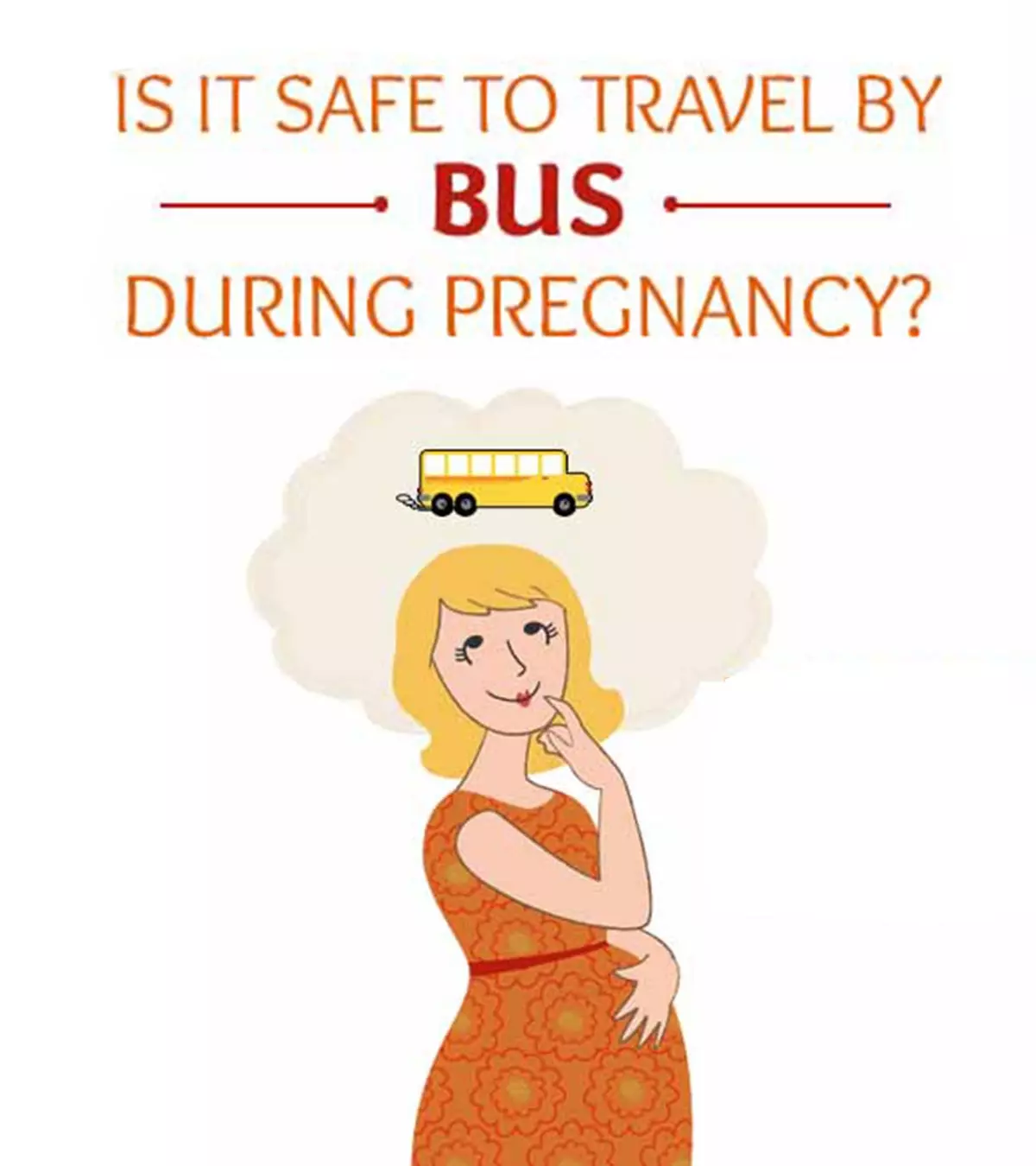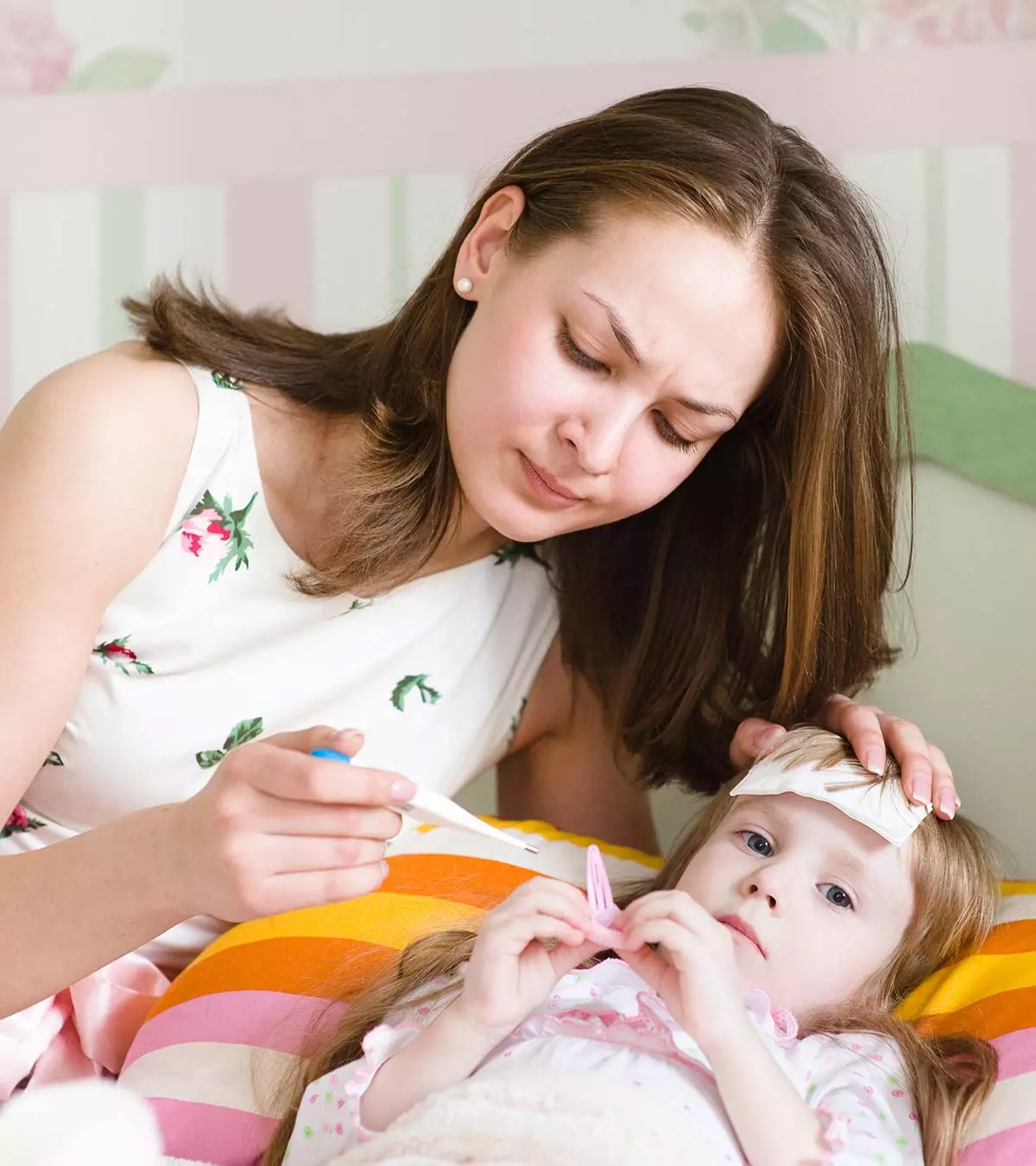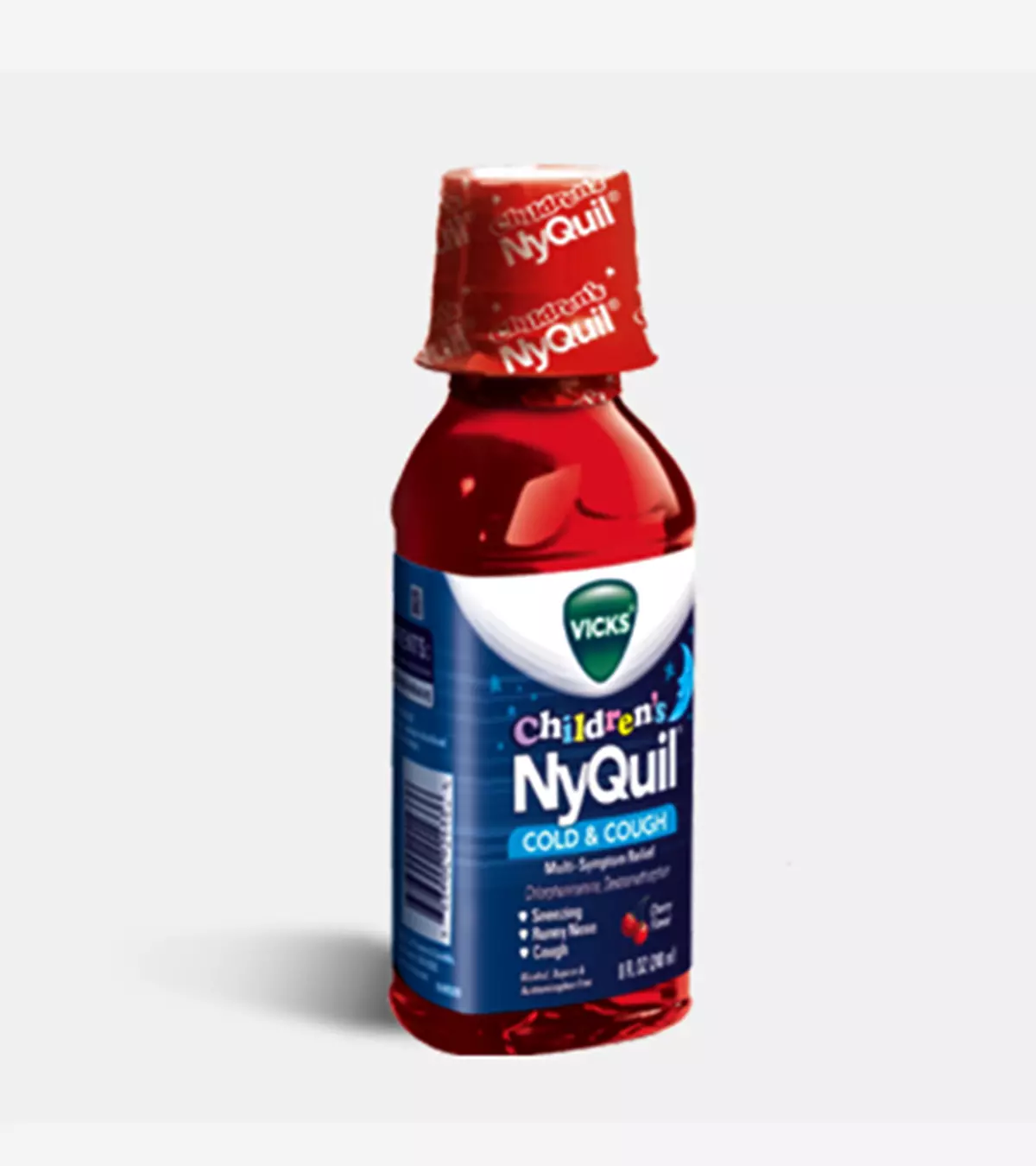
Image: Vicks
Nyquil for kids younger than 12 years is not recommended unless prescribed by a medical practitioner. Nyquil provides temporary relief from cold and cough since it constricts the blood vessels and blocks the histamine action, reducing throat and bronchial irritation, runny nose, and sneezing. It contains medications such as doxylamine succinate (antihistamine), acetaminophen (pain reliever), and dextromethorphan (cough suppressant). Other drugs control the cough, fever, and pain (1).
Many parents and caregivers tend to use this medication for kids due to symptomatic relief. However, is it safe to use Nyquil without a prescription? Does it cause any health risks in kids? Read on to understand the safety and effects of Nyquil for children and the recommended precautions.
Key Pointers
- Nyquil is a commonly used medication for treating flu and cold diseases and symptoms.
- This medication is prohibited for children under six years old, as some of its components can harm them.
- It comes with different dosages for children; hence, following only the prescribed dosage is extremely important.
- To avoid using this medication, one can use home remedies like getting plenty of water and rest to treat cold or flu symptoms.
Is Nyquil Safe For Children?

Image: IStock
The US Food and Drug Administration (FDA) recommends that OTC cold and cough medications should not be given to infants under the age of two, because these products contain decongestant and antihistamine drugs, which can cause convulsions, rapid heartbeat, diminishing consciousness, and possible death (2).
So, at what age can you give Nyquil to children?
According to the manufacturer’s (Vicks) website, Nyquil should not be given to children under the age of 12 years. However, they suggest giving Children’s Nyquil to children aged between six and 11, and to children aged four to six only if prescribed by the doctor (3).
Dr. Kelly Johnson-Arbor, MD, FACEP, FUHM, FACMT, a Virginia-based physician triple board-certified in emergency medicine, medical toxicology, and undersea and hyperbaric medicine, says, “Children’s formulations of Nyquil contain a cough suppressant and antihistamine, and may also contain a nasal decongestant. Traditional Nyquil products may also contain these ingredients, but in higher doses that may cause unwanted side effects in children. Additionally, traditional formulations of Nyquil often contain acetaminophen or alcohol in doses that are safe for adults, but may be too high for children and cause unwanted side effects or toxicity.”
Children’s Nyquil Dosage Chart
| Child’s age | Dosage |
|---|---|
| 12 years and above | 30ml every six hours |
| Six to 12 years | 15 ml every six hours |
| Four to six years | Consult your doctor for dosage recommendations |
| Under the age of four | Do not use Nyquil (4) |
In any case, make sure that you do not give more than four doses in 24 hours (5).
Note: Always use the dosage cup that comes with the medicine. And do not increase the dosage as excess acetaminophen can cause liver damage (1).
Even though the dosage instructions are mentioned on the label, it is good to consult your doctor before giving any medicine to your child. This helps you avoid overdosing, which can harm the child’s health.
Children’s Nyquil is a liquid preparation available in cherry flavor, which may make it easier to administer the medication to children.
Possible Side Effects Of Nyquil

Image: Shutterstock
Children’s Nyquil may also have a few side-effects, such as drowsiness and excitability (1).
Other possible side effects include:
- Blurred vision
- Dizziness
- Dry mouth, nose, or throat
- Lightheadedness
- Nausea and vomiting
- Stomach pain
- Irregular heart rate
- Hallucinations or mood changes
- Seizures or tremors
- Trouble urinating (11)
These side effects may or may not occur, depending upon the child. But if you notice any of the symptoms in your child, then take them to a doctor.
 Quick fact
Quick factAlso, some kids can be allergic to Nyquil and develop the following symptoms upon taking the drug.
- Rash
- Hives
- Difficulty in swallowing and breathing
- Swelling in face, throat, and mouth
- Feeling of dryness
 Be watchful
Be watchfulIf you spot any of the above allergic reactions in your child, then stop giving the medicine and take them to the doctor (6).
Does Nyquil Make The Child Sleepy?
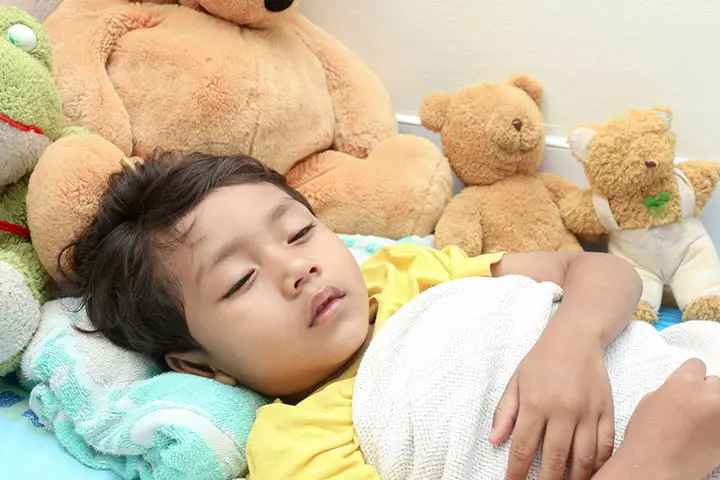
Image: IStock
Nyquil may cause drowsiness in children, making them feel sleepy. Therefore, it should always be given under adult supervision, especially at night time, to ensure the child’s safety.
However, this medication should never be given to help a healthy child sleep. If children are given Nyquil when they are not sick, it could lead to Nyquil dependency and can cause withdrawal symptoms when they stop taking Nyquil (6).
Precautions To Take While Administering Nyquil For Kids
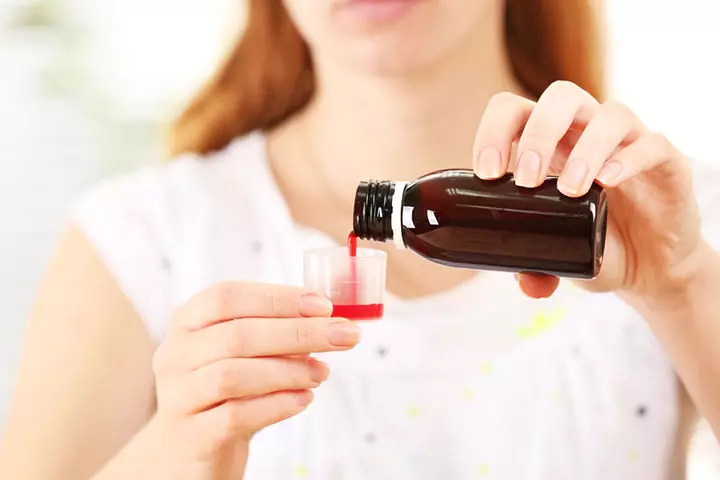
Image: Shutterstock
- Never give your child more than the recommended dosage at a time. Even if you miss a dose, give them the prescribed dose, but not more, the next time. Never administer two doses at once or give more than the recommended dosage.
- Always measure the medicine with the measuring cup or dispenser you get with it.
- Nyquil can only relieve the symptoms of cold and flu and does not cure them. This fact should be kept in perspective. So, it can take about five to seven days for the cold to subside. However, in this course of time, if the symptoms worsen or new symptoms occur, then take your child to the doctor.
- Your child must get enough rest and fluids when they have a cold.
- Tell your doctor about other medicines your child may be taking before using Nyquil to avert possible drug interactions.
 Quick tip
Quick tipBefore going for Nyquil, try out the alternative measures, such as using a bulb syringe to suck out the mucus, or encourage your child to blow their nose. Running a warm shower in your child’s room may help in easing the symptoms (7).
Frequently Asked Questions
1. Can I give my child Tylenol and Nyquil together?
No, since both Tylenol and Nyquil contain acetaminophen, giving them together to your child may make them consume a higher dosage than required. This may put them at risk of acetaminophen-induced liver toxicity (8).
2. Can children take ibuprofen and Nyquil together?
Yes, since ibuprofen for kids is a different class of drug than Nyquil, it is safe to give both medicines to a child after consulting a doctor (9).
3. How long does children’s Nyquil take to kick in?
Dr. Johnson-Arbor opines, “Nyquil takes approximately 30-60 minutes to kick in after it is consumed.”
4. What should I do if I miss a dose of Nyquil for my child?
When you miss a dose, give the missed dose as soon as you remember. However, ensure that the dose is not close to the time for the next dose and wait for adequate intervals to prevent overdosing.
Nyquil for kids is an over-the-counter cold and cough medication that children under 12 years should not consume unless directed otherwise by the doctor. Drowsiness, stomach pain, nausea, and vomiting are some of the side effects of this medication that parents should note. Also, some children can develop an allergic reaction to Nyquil. Thus, parents should use this medication only after consulting a medical professional. Washing hands frequently, covering mouth and nose while coughing or sneezing, and keeping the vaccination up to date are practical ways to fight cold and flu spread.
This post is for informational purposes only and is not a replacement for a doctor’s consultation. Do not use any medication without talking to your doctor.
Infographic: Things To Remember When Using OTC Medications For Children
Most over-the-counter cough and cold medications contain combinations of ingredients that you may need to be careful about when using them for children. Check out the infographic below for dos and don’ts when procuring or using children’s cough and cold medications. Illustration: Momjunction Design Team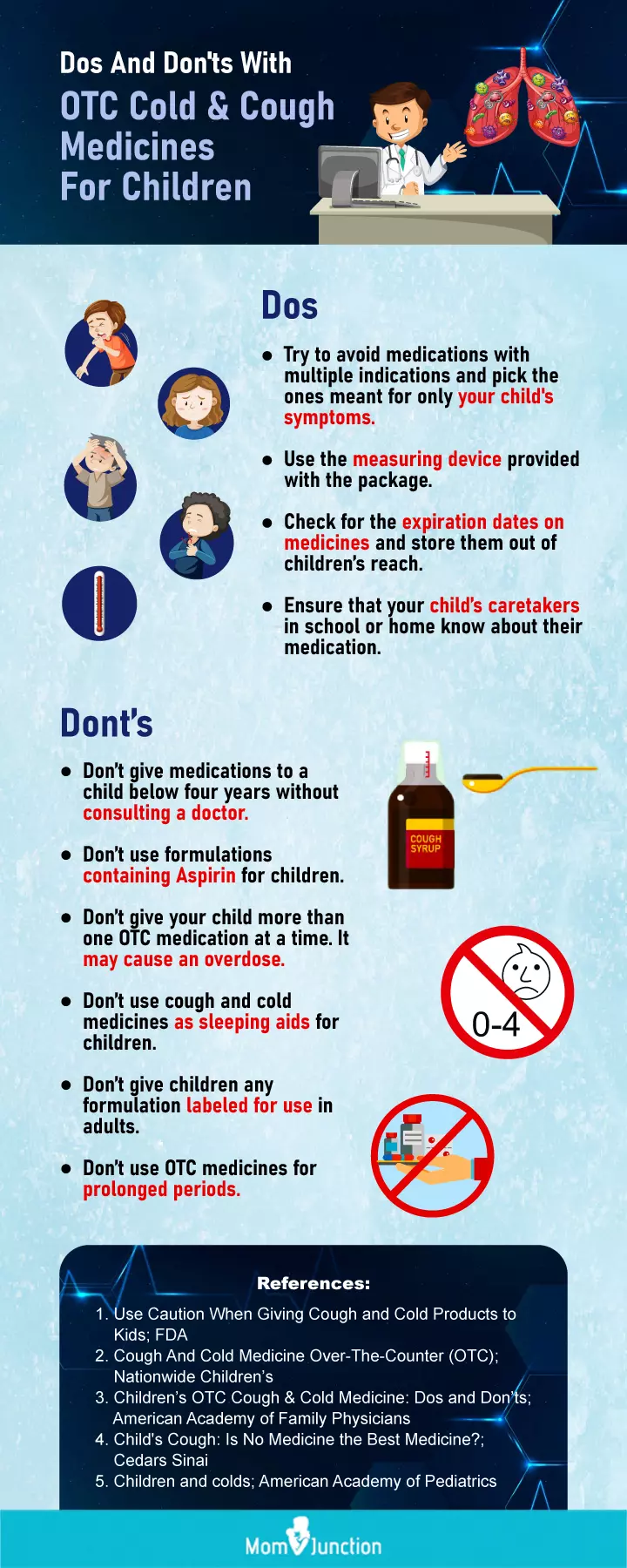
References
1. Vicks Nyquil Cold and Flu; Dailymed
2. Use Caution When Giving Cough and Cold Products to Kids; The US Food and Drug Administration
3. Vicks Nyquil FAQ; The official Vicks website
4. Vicks Children’s Nyquil Cold and Cough Multi-symptom relief; Dailymed
5. Vicks NyQuil Cold & Flu Nighttime Relief Original Flavor Liquid 8 fl oz; smartlabel
6. Nyquil Addiction and Abuse; Addiction Center
7. Help for a Child with a Cold; Stanford Children’s Hospital
8. Cold and flu warning: The dangers of too much acetaminophen; Harvard Medical School
9. Understanding Colds, Flu and COVID and your treatment options! Health Partnership Clinic
10. Children’s Nyquil Side Effects! Drugs.com
11.Vicks Children’s NyQuil Cold and Cough 2 mg-15 mg/15 mL oral liquid; Kaiser Foundation Health Plan, Inc.
Community Experiences
Join the conversation and become a part of our nurturing community! Share your stories, experiences, and insights to connect with fellow parents.
Read full bio of Dr. Mubina Agboatwalla
- Dr. Kelly Johnson-Arbor is triple board-certified in Emergency Medicine, Medical Toxicology, and Undersea and Hyperbaric Medicine. She completed her MD from Loyola University Stritch School of Medicine and works at National Capital Poison Center.
 Dr. Kelly Johnson-Arbor is triple board-certified in Emergency Medicine, Medical Toxicology, and Undersea and Hyperbaric Medicine. She completed her MD from Loyola University Stritch School of Medicine and works at National Capital Poison Center.
Dr. Kelly Johnson-Arbor is triple board-certified in Emergency Medicine, Medical Toxicology, and Undersea and Hyperbaric Medicine. She completed her MD from Loyola University Stritch School of Medicine and works at National Capital Poison Center.
Read full bio of shreeja pillai
Read full bio of Swati Patwal
Read full bio of Dr. Joyani Das






